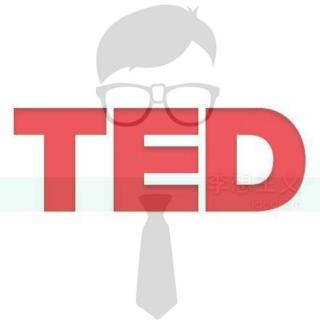
跟李想死磕TED|02-02 How we can make energy more affordable for low-income
2018-10-31 14'11''
主播: 「李想」
4756 25
介绍:
This is why, when I was 22, I founded the nonprofit RETI. Our mission is to alleviate energy burdens by working with communities, utilities and government agencies alike to provide equitable access to clean energy, energy efficiency and energy technology.
这就是为什么在我22岁的时候,找到了非盈利机构RETI。我们的使命是减轻能源负担,社区、公共事业公司和政府一起为清洁器能源、高效能源和能源科技提供公平的入口。
But there's no one way to solve this. I believe in the power of local communities, in the transforming effect of relationships. So we start by working directly with the communities that have the highest energy burdens. We host workshops and events for communities to learn about energy poverty, and how making even small updates to their homes like better insulation for windows and water heaters can go a long way to maximize efficiency. We're connecting neighborhoods to community solar and spearheading community-led smart home research and installation programs to help families bring down their energy bills. We're even working directly with elected officials, advocating for more equitable pricing, because to see this vision of energy equity and resilience succeed, we have to work together sustainably.
但是没有单独一个途径可以解决。我相信本地社区的能力,我相信它们间的转变效率。所以我们开始着手直接和高能源负担的社区合作。我们在社区中主持了若干个工作组和项目,来了解因为能源负担不起的生活疾苦,以及如何做一些哪怕小的改进,就比如提高的房子的保温效果,又比如提高水暖系统的最高效率。我们正在把社区太阳能接入每一户家庭,并率先进行社区主导的智能家居探索,还有安装了能降低能源开支的程序。我们甚至直接和当选的官员一起,倡议更公平的价格,因为要实现实现能源公平的愿景并最终获得成功,我们必须一起持续努力。
Now, the US spends over three billion a year on energy bill payment assistance. And these programs do help millions of people, but they're only able to help a fraction of those in need. In fact, there is a 47-billion-dollar home-energy affordability gap, so assistance alone is not sustainable. But by building energy equity and resilience into our communities, we can assure fair and impartial access to energy that is clean, reliable and affordable. At scale, micro-grid technology, clean technology and energy efficiency dramatically improve public health. And for those with high energy burdens, it can help them reclaim 20 percent of their income -- 20 percent of a person's income who's struggling to make ends meet. This is life-changing. This is an opportunity for families to use their energy savings to sponsor their future.
现在,美国每年在能源补贴上花超过30亿美元。那么这些项目的确能帮到数百万人,但是那只能帮到的很小部分。实际上,有470亿美元的家庭用电负担的缺口,所以只是补贴是不可持续的。但通过在社区里重新建立起对于能源公平感,我们可以确保公平公正的能源补贴途径,这样清晰、可信也负担得起。总体来看,微电网、清洁能源和能源效率戏剧性的有助于公众健康的提升。还有,对于高能源负担的人们来说,它有助于改变占20%收入的这种情况--20%对于一个人的收入来说占很大一块。这是生活质量的提升。对于千家万户来说能源节省是一个绝佳的机会让她们可以对未来充满希望。
I think back to my great-grandmother and her neighbors, the impossible choices that they had to make and the effect it had on our whole community. But this is not just about them. There are millions nationwide having to make the same impossible choices today. And I know high energy burdens are a tremendous barrier to overcome, but through relationships with communities and technology, we have the paths to overcome them. And when we do, we will all be more resilient.
我想话题可以回到我的曾祖母和她的邻居们,那些无法选择的选择和整个社区的现状。但不仅仅是他们,在全国,就现在,仍有有数千万人在做着无法选择的选择。而且我知道高能源负担把收入大量地埋没了,但是通过社区和技术的结合,我们已经有了改善的很多方法。而且只要我们做下去,我们就可以更有回报。
Thank you.谢谢
(Applause)(掌声)
大家还在听

